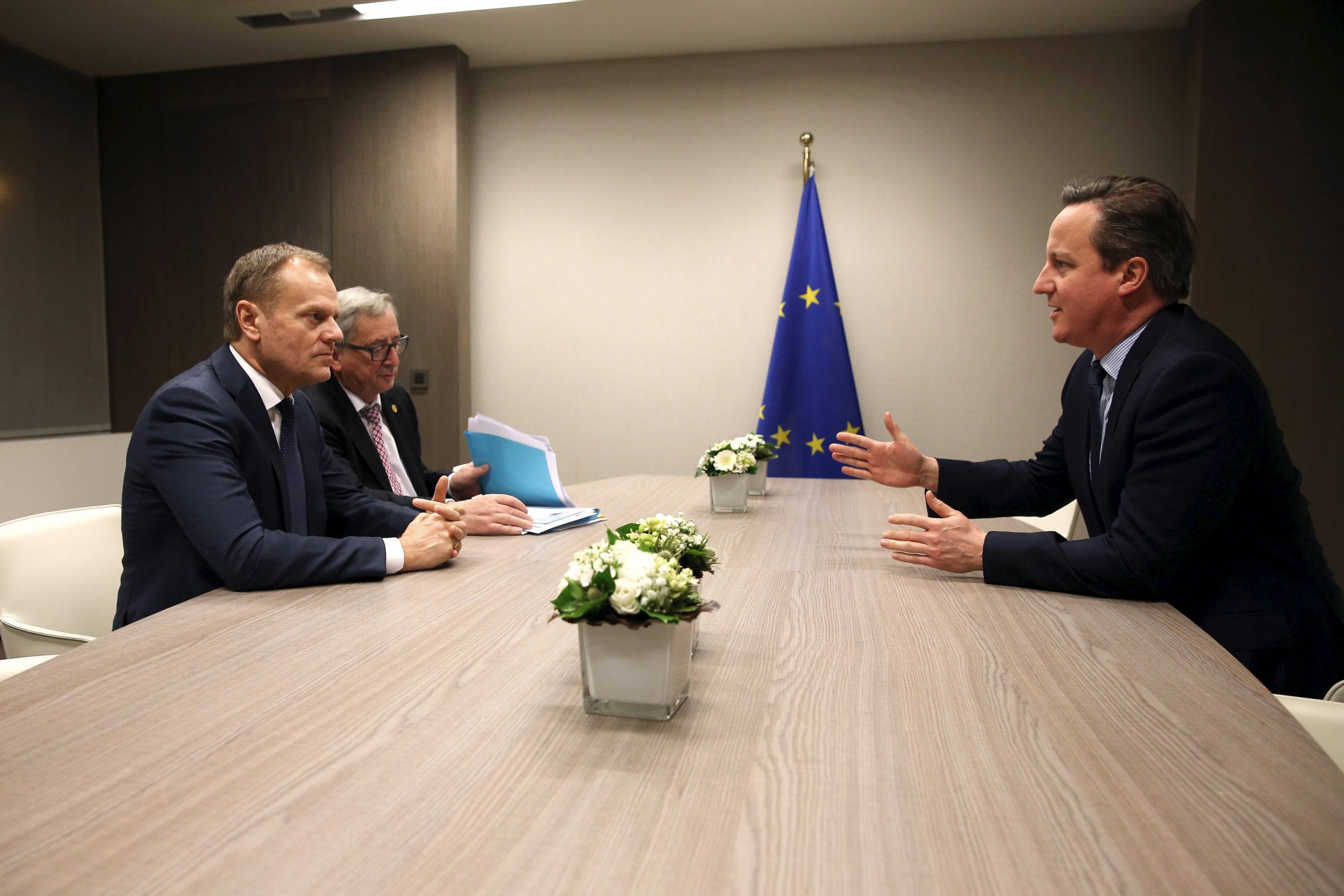
BRUSSELS (Reuters) - Call it the surrealist summit. How very Brussels.
As Europe's leaders bargained through the night on a deal to help Prime Minister David Cameron keep Britain in the EU, a "war room" of lawyers wrangled over how to reconcile diametrically opposite meanings of the same three words - "ever closer union".
It reminded one official of Belgian surrealist Rene Magritte's painting of a pipe, "Ceci n'est pas une pipe" (This is Not a Pipe), when is a thing real and when merely an image?
Does the treaty vow commit governments to build a United States of Europe, as the Union's federalist host Belgium hopes and euroskeptic Britons fear? Or is it just an abstract political aspiration, a harmless adornment to the charter, as most other leaders -- and their lawyers -- argue.
Other open issues came down to straightforward summit arm-wrestling -- how far could Cameron get away with taking welfare benefits away from east European migrant workers or with shielding the City of London from euro zone banking regulations.
Yet perhaps the deepest dispute was about the meaning of the post-World War Two European project, pitting sovereignist Britain against federalist Belgium while most other leaders shook their heads and wondered why either seemed to care.
"Every lawyer in Europe agrees 'ever closer union' doesn't mean anything. It's just a nice phrase," said one EU official.
"Only two places share an opposite interpretation -- Britain and Belgium. But politically they look at it in opposite ways."
The problem flared when draft proposals sought to reassure Britain that the phrase in the European Union treaty declaring a shared intent to "lay the foundations of an ever closer union among the peoples of Europe" did not constitute an obligation to political integration that could be enforced by EU courts.
In Belgium, where cultural and linguistic divisions among its 11 million people and a war-scarred 20th century have largely discredited nationalism in favor of the European ideal, outraged officials branded that interpretation "incredible".
Cameron was determined to show patriotic voters that Britain was not on conveyor belt to a European super-state. But Belgian Prime Minister Charles Michel argued that London's demand to opt out of ever closer union risked "dismantling" the EU.
LAW VS POLITICS
That left the backroom lawyers poring over legal precedent in what one official called a "war room" close to the summit chamber and scribbling tweaks to bridge conflicting legal and political meanings into phrasing that could satisfy all.
"Legal reality is colliding with political reality," said one diplomat, from a third country, of the British-Belgian spat.
"We need some linguistic contortions on 'ever closer union' to say it is not legally binding (which matters to the British) but politically important (which matters to the Belgians)."
"They are arguing over amendments, over the commas."
British officials conceded Cameron's insistence on quashing the phrase seemed quixotic to other leaders whose lawyers insist it is legally meaningless. But fear of what it means about EU power has made it a British political reality.
A senior EU negotiator said Belgian officials had explained their political dilemma in terms of Magritte's 1928 painting.
"We need to find a common understanding ... which reflects on the one hand the legal dimension of it -- Ceci n'est pas une pipe, you can not really smoke it, that's what Magritte said -- but it's true, when you look at it, you see a pipe."
Uncommon Knowledge
Newsweek is committed to challenging conventional wisdom and finding connections in the search for common ground.
Newsweek is committed to challenging conventional wisdom and finding connections in the search for common ground.
About the writer
To read how Newsweek uses AI as a newsroom tool, Click here.








